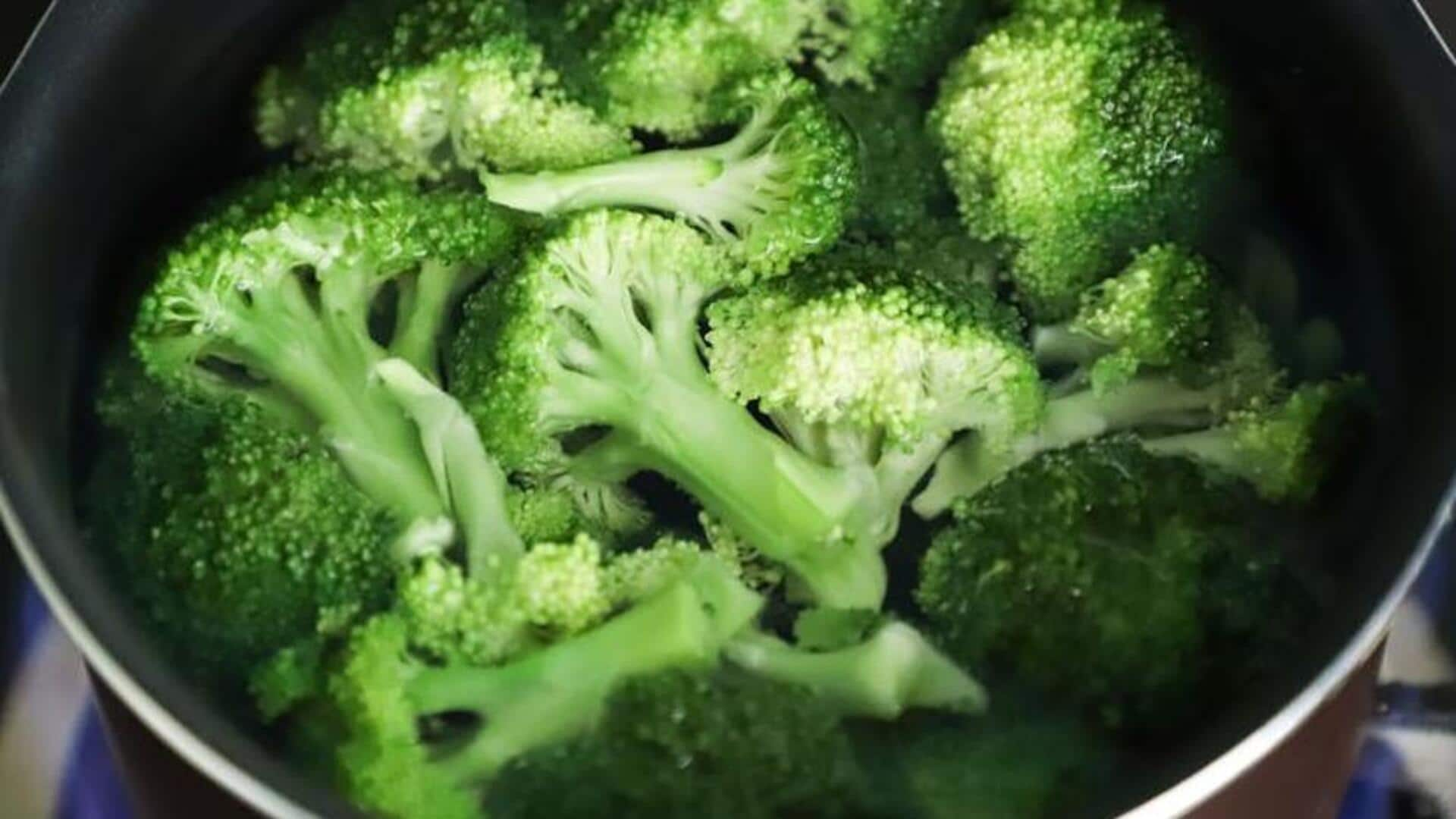
Brussels sprouts v/s broccoli: Which is better for your health?
What's the story
Brussels sprouts and broccoli are both members of the healthy cruciferous vegetable family.
These vegetables are often compared because of their similar nutritional profiles.
While they share a lot of the same nutrients, each has its own unique characteristics that make them shine.
Here, we take a look at the nutritional profiles of both vegetables, their health benefits, and how they fit into a balanced diet.
Vitamins
Vitamin content comparison
Brussels sprouts and broccoli are packed with vitamins, especially vitamin C and vitamin K.
Broccoli has more vitamin C, which is important for immunity and skin health.
Brussels sprouts, on the other hand, are rich in vitamin K, which is necessary for blood clotting and bone health.
Both vegetables also contain a decent amount of folate, which helps with cell growth and metabolism.
Fiber
Fiber benefits in cruciferous vegetables
Both Brussels sprouts and broccoli are great sources of dietary fiber.
Fiber helps in digestion by ensuring regular bowel movements and preventing constipation.
It also helps keep cholesterol levels in check by binding with cholesterol particles in the digestive system.
Including these veggies in your diet can thus go a long way in improving your digestive health.
Antioxidants
Antioxidant properties explored
Cruciferous vegetables such as Brussels sprouts and broccoli are packed with antioxidants that protect our cells from free radical damage.
Broccoli stands out for its sulforaphane levels, an antioxidant studied for its cancer-fighting properties.
Likewise, Brussels sprouts contain kaempferol, an antioxidant linked to reduced inflammation.
All these nutrients add to the health benefits of these vegetables, making them amazing additions to a balanced diet.
Cooking tips
Cooking methods impact on nutrition
Did you know the way you cook Brussels sprouts and broccoli can alter their nutritional value?
Steaming is one way which helps retain most nutrients as opposed to boiling or frying.
Roasting these vegetables brings out their natural flavors without greatly diminishing the nutrient content.
Including them raw in salads is another way to reap their full nutritional benefits, while adding crispiness to your meals.